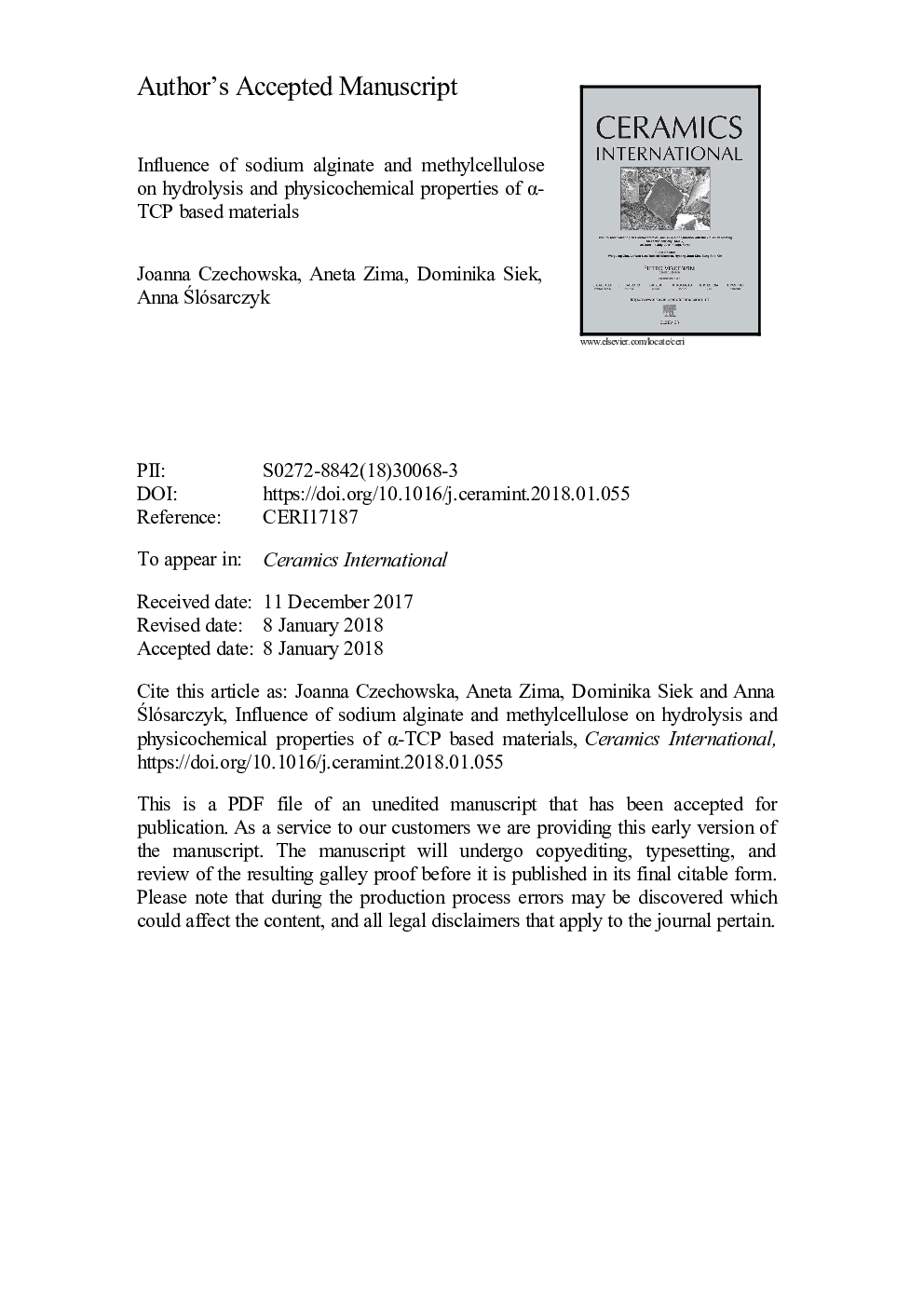| Article ID | Journal | Published Year | Pages | File Type |
|---|---|---|---|---|
| 7887910 | Ceramics International | 2018 | 23 Pages |
Abstract
The effect of the sodium alginate and methylcellulose modifiers on hydrolysis, setting reaction, microstructure, mechanical and in vitro properties of α-TCP based materials was investigated. It was found that the presence of sodium alginate impeded α-TCP hydrolysis to hydroxyapatite, which may have a significant influence on resorbability, biodegradation and biological behavior of biomaterials. There were several reasons for these phenomena, such as: (I) the gelation of sodium alginate in the presence of Ca2+, (II) the creation of an organic layer which impedes the diffusion of water molecules to α-TCP and (III) the uptake of water molecules by sodium alginate. The inhibitory effect was not observed for methylcellulose and it was diminished in simulated body fluid. Additionally, it was demonstrated that the examined cements varied in their microstructure, setting times and compressive strengths, depending on the applied kind of a polymer additive. The cement containing sodium alginate had a higher compressive strength (20 ± 8 MPa) than the one with methylcellulose (17 ± 4 MPa) and the one lacking polymer (14 ± 4 MPa). All the developed materials exhibited high bioactivity in vitro.
Related Topics
Physical Sciences and Engineering
Materials Science
Ceramics and Composites
Authors
Joanna Czechowska, Aneta Zima, Dominika Siek, Anna Ålósarczyk,
